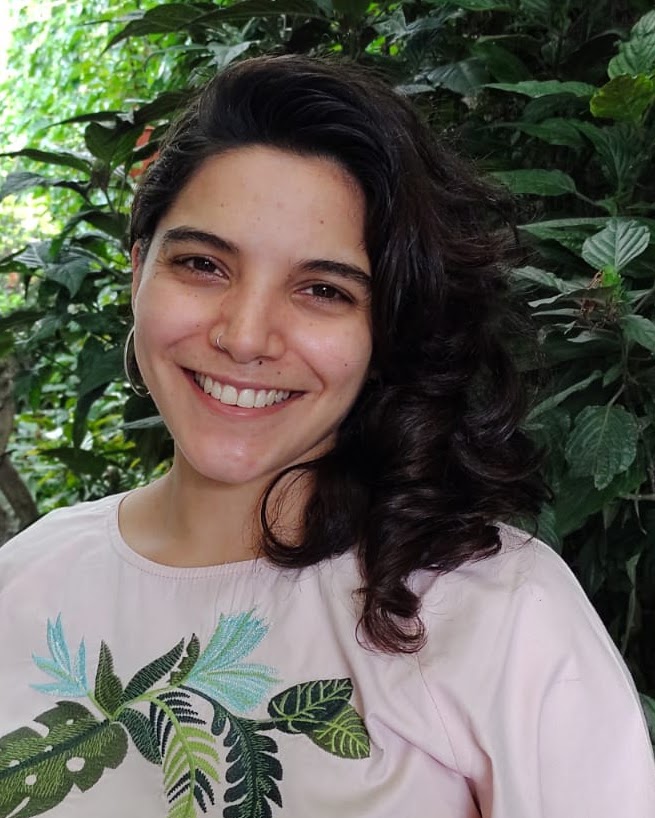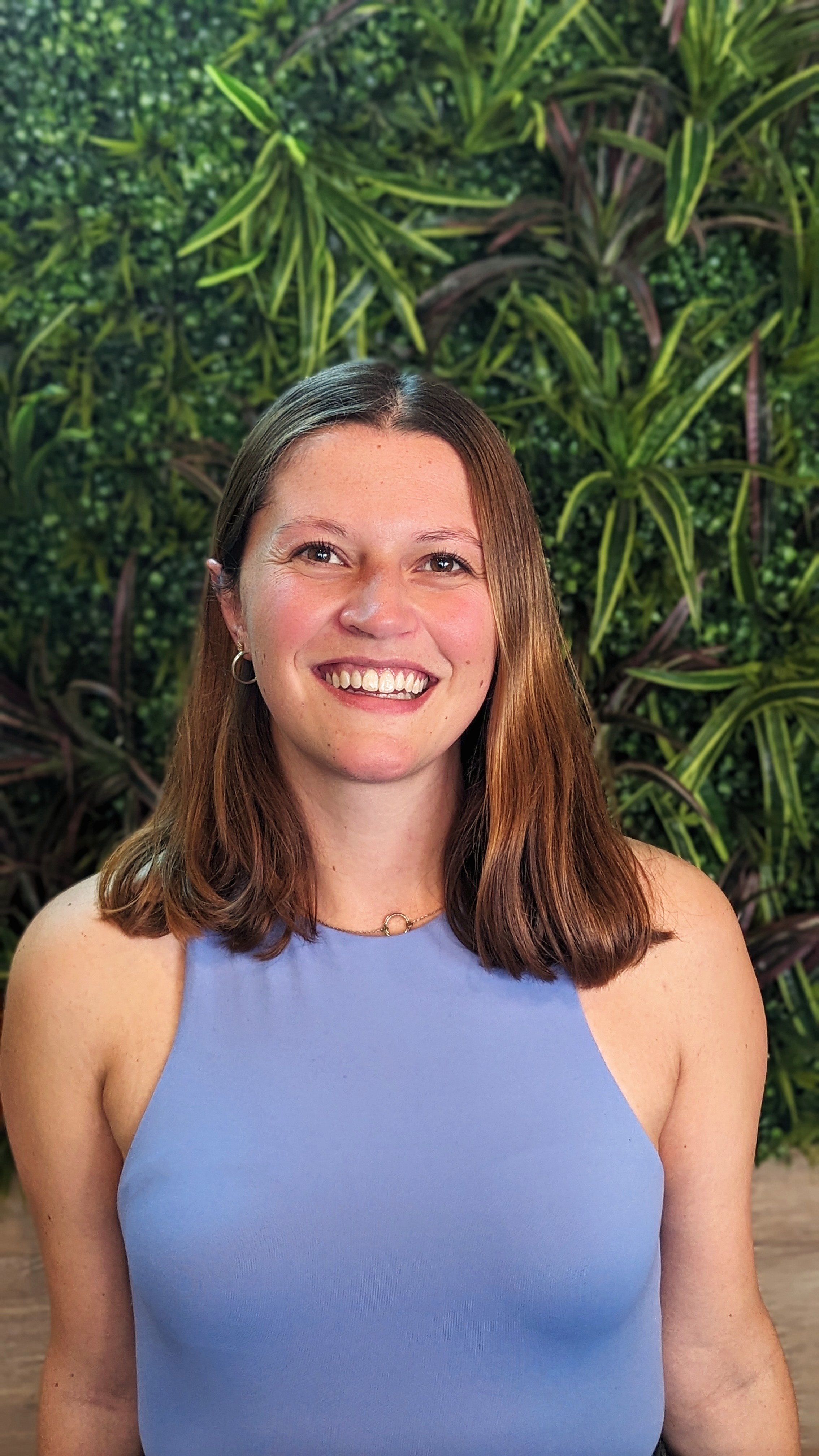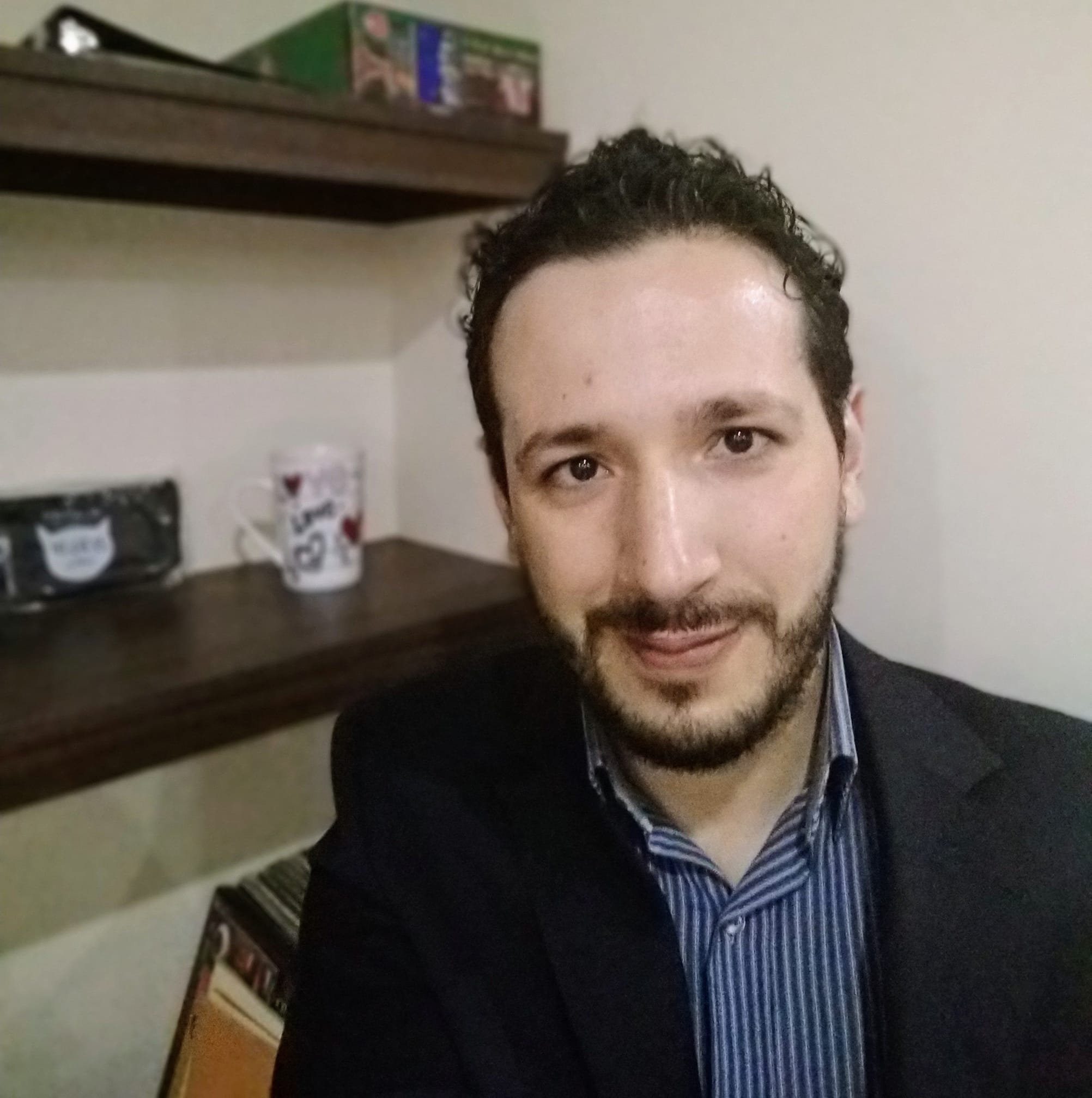2024 Dissemination Activities
2024 Dissemination Activities office_1Argentina Dissemination Activities 2024
Argentina Dissemination Activities 2024Barbara Camila Silva

Could you please tell us a little about you and your background?/¿Podrías contarnos un poco sobre ti y tu trayectoria?
Hola, mi nombre es B. Camila Silva y soy Lic. en Psicología desde el 2019. Estudié mi carrera de grado en la Universidad Favaloro y desde el 2018 tengo una continua formación en terapias contextuales, especialmente en ACT y DBT en el área infanto juvenil. Sobre todo en población preadolescentes, adolescentes y sus familias.
How did you become interested in CBS?/¿Cómo te interesaste en CBS?
Mi interés en las terapias contextuales nació en el 2018 tras haber cursado con Lic. Manuela O'Connell un materia optativa de la facultad de "Introducción a la Terapia de Aceptación y Compromiso", y Lic. Carolina Principi que lleva a cabo formaciones y coordina el equipo de DBT Adolescentes en Fundación Foro, además con esta profesional presencie clases sobre DNA-v para adolescentes años más tarde. Luego de mi primer clase sobre estas terapias comprendí que esta era la forma en la que elegía acompañar a los consultantes y sus familias.
Could you tell us about your research and application interests?/¿Podría hablarnos de sus intereses de investigación y aplicación?
En este momento trabajo de manera privada en clínica infanto juvenil. También llevó a cabo un proyecto comunitario de formación gratuita para residentes y concurrentes del servicio de Salud Mental del ámbito público de CABA, Argentina "Introducciona la Terapia de Aceptación y Compromiso en la Niñez, Adolescencia y sus familias". El taller se realizará desde Marzo 2025 hasta Mayo 2025. Este proyecto se pudo realizar gracias al apoyo de los Jefes de Residentes del Hospital Elizalde Lic. Carolina Medici y Dr. Gonzalo Lores Arnaiz, y la médica de planta del hospital Dr. Roxana Orbe. También es importante destacar que sin los profesionales especialistas en esta área que aceptaron dar las clases este proyecto no sería posible.
Could you tell us about your experience at the World Conference this year?/¿Podría contarnos sobre su experiencia en la Conferencia Mundial de este año?
Poder participar de una Conference por primera vez fue una experiencia realmente fructífera, puedo comprender realmente a través de mi cuerpo cómo se siente "ser comunidad". Siento que es muy difícil poder explicar en palabras lo que se siente y lo que se vive en estas actividades, aún así puedo decir que se respira comunidad.
Por otro lado, de manera más concreta la participación en la Conference me brindó más herramientas clínicas y la sensación de que las intervenciones que hago de manera individual en el consultorio tiene sentido y hay una comunidad que lo sostiene.
Was there anything that stood out to you about the CBS community?/¿Hubo algo que te llamara la atención de la comunidad de CBS?
Si, la sensación real de comunidad. Se siente el respeto y amor que realmente hay.
What did you take back from your experience that has been helpful to you?/¿Qué te llevaste de tu experiencia que te haya sido útil?
Tuve el privilegio de cursar con Louise Hayes el Pre Conference, y luego poder asistir a varias presentaciones de clínica infanto Juvenil que me llenaron de recursos y seguridad interna para poder abordar a mis consultantes y sus familias.
Do you have anything else that you would like to share with the community?/¿Tienes algo más que te gustaría compartir con la comunidad?
Ojala todas las personas que se dedican a la salud mental tengan acceso a una conference por que es una experiencia que te atraviesa completamente tanto como persona como profesional de salud mental.
If you would like to donate to the DN Training Fund please click here / Si desea donar al Fondo de Capacitación de DN, haga clic aquí
Colombia Dissemination Activities 2024
Colombia Dissemination Activities 2024Verónica Márquez Barraquer

Could you please tell us a little about you and your background?
I am a 28 year-old clinical psychologist from Bogotá, Colombia. I am an active member of a research group focused on contextual interventions to optimize well-being and have also developed a technological platform aiming to aid psychotherapists in their daily jobs.
How did you become interested in CBS?
I first became interested in CBS during my master’s degree in clinical psychology. Its focus on understanding human behavior through contextual and functional lenses deeply resonated with me, especially as I worked with a diverse population. The tools and principles of CBS not only provided meaningful improvements in my clients' lives but also offered profound insights and personal growth in my own journey as a clinician.
Could you tell us about your research and application interests?
I am an active member of CONTIGO, a research group focused on contextual interventions to optimize well-being. My contributions include the translation and cultural adaptation of psychometric instruments for the Latin American population, as well as the development and implementation of Prolonged Exposure and Compassion-Centered Therapy for individuals with PTSD. My graduate and ongoing work focuses on creating a training protocol for FAP coders to study mechanisms of change in Functional Analytic Psychotherapy (FAP).
Additionally, I have developed and actively promote the use of technological tools designed to support psychotherapists by streamlining their workload. My goal is to reduce their administrative burdens and foster deeper, more meaningful therapeutic connections.
Could you tell us about your experience at the World Conference this year?
Looking back at the ACBSWC, four words come to mind: welcoming, moving, inspiring, and humbling.
Attending the World Conference this year was an invaluable experience that offered me fresh perspectives on the many ways CBS principles and values can enrich both my personal and professional life. It was a unique opportunity to immerse myself in the diverse facets of CBS—hearing from brilliant minds, exploring different applications, and staying abreast of the latest developments in the field. The ACBSWC creates an empowering and inspiring space, where the principles of CBS aren’t just discussed but brought to life. Beyond the learning, it fosters a sense of connection and community, allowing participants to deeply engage with one another and with the transformative potential of CBS in action.
Was there anything that stood out to you about the CBS community?
Reading about CBS is one thing, but meeting the people behind it is an entirely different and transformative experience. It felt almost like a rock concert—seeing the faces of the authors whose work has profoundly shaped the professional I’ve become was both surreal and exhilarating. But beyond the excitement, what truly stood out was the opportunity to witness and feel the principles of CBS in action. The CBS community brings together individuals who share a deep commitment to common values and who work tirelessly toward personal and professional growth. This shared dedication creates an atmosphere that embodies the essence of CBS—connection, compassion, and mutual respect. It’s a space that doesn’t just teach lessons; it leaves an indelible impression that words alone struggle to convey.
What did you take back from your experience that has been helpful to you?
Personally, my experience at the ACBSWC has deepened my commitment to maintaining a lifelong connection with the principles of CBS and the vibrant community that embodies them. It’s a reminder to not only live these values but also actively seek ways to foster their growth in my own life and those around me.
Professionally, the conference has been transformative. It has provided me with the tools and inspiration to connect more deeply with my clients and fellow professionals. I’ve been fortunate to share my experience with colleagues, transforming the insights and lessons learned into meaningful discussions and collaborative efforts, as well as guiding the development of a workshop tailored for our local and regional audience.
Moreover, this experience has profoundly shaped the future of my startup. It has helped me understand the power of meaningful connections, which now serves as a guiding principle for every decision I make regarding this platform. I am committed to continuing the development of technological tools that benefit well-prepared professionals, making space for genuine relationships and science-backed decisions.
Do you have anything else that you would like to share with the community?
I would like to express my sincere gratitude to both ACBS and all the members who contributed to making this event possible. It is truly a unique opportunity to feel connected to such an inspiring and supportive community. As psychologists, it can often be challenging to feel part of a larger network and to witness the broader impact of our work. The ACBSWC provides a powerful way to bridge that gap, offering us a chance to connect, share, and learn together, strengthening the sense of belonging within the field.
If you would like to donate to the DN Training Fund please click here / Si desea donar al Fondo de Capacitación de DN, haga clic aquí
Colombia Dissemination Activities 2024
Colombia Dissemination Activities 2024Oscar Cordoba

Could you please tell us a little about you and your background?
I am 39 years old and from Colombia. I recently completed my Ph. D. studies in Bogota. I am a certified FAP trainer, and my research interests are related to training therapists in skills to foster therapeutic relationships that promote change in clients.
How did you become interested in CBS?
My interest in CBS has its roots in my BA psychology studies. In Colombia, bachelor's studies are longer than in the US and other northern countries. This is because, besides the topics we take, we have to learn professional skills related to the field. That is why our college studies include a practicum. In my time as a college student, I focused on basic behavior analytic research, and my practicum was as a researcher, where my fascination for behavior analysis deepened. Then when I entered the field of clinical psychology with postgraduate studies, I stumbled upon FAP. A professor who offered a course on ACT recommended that I strengthen my relational skills. Which led me to read about FAP. I found FAP beautiful for its focus on the therapeutic relationship and its emphasis on interpersonal connection, something I needed dearly at the time. However, what had the most impact was its emphasis on behavior-analytic principles and the e legance in which these principles were articulated to serve psychotherapy. FAP spoke to me at a personal and intellectual level. This discovery led me to learn more about contextual behavioral therapies and their philosophical underpinnings, and shortly after, join the ACBS.
Could you tell us about your research and application interests?
My main research interest currently is about strategies to train therapist skills. Despite the importance of therapist skills something that tends to be taken for granted is the training process. Although in recent years there is more research about supervision and training strategies it is still a very small field compared to efficacy research in psychotherapy. While I was digging in the field of training research I found the field of expertise research and the concept of deliberate practice. I believe this is powerful framework to inform training strategies, despite many of its assumption are already embedded in behavioral trainings. However, despite the close resemblance between behavioral trainings and deliberate practice strategies for training, there is a lot of room for improvement in our field's training strategies using deliberate practice. So, my main interest is to improve the way we train therapist skills with empirically based strategies, especially, deliberate practice.
It had been many years since I could attend an ACBS conference, which is why the experience was so wonderful. First, I was able to reconnect with other members I haven't seen in years and meet people in person I just have emailed or met virtually before. It was also an opportunity to learn about what people have been working on. There is a very different quality to hearing people talk about their work compared to reading about it in papers. I was able to participate in training sessions to hone my skills and get new ideas. It is revitalizing to watch so much creativity and development firsthand. It was also an opportunity to hear feedback on my work from other people related to my ideas in training strategies. I did not anticipate receiving such positive feedback. Overall, it was an enriching experience that allowed me to get in touch with new knowledge that inspired new ideas.
Was there anything that stood out to you about the CBS community?
Reconnecting with the community was energizing. My interactions were warm, and there was a lot of joy in them. Something that I love about the community is the collaborative spirit. You notice how it is possible to build a network and find support for your ideas. I am now interested in continuing to build networks of collaborative work.
What did you take back from your experience that has been helpful to you?
First, the pre-conference workshop about CFT provided me with specific tools to work with in private practice. The use of some compassion strategies coupled with ACT/FAP strategies has helped me to improve the impact of the therapy process I provide. Second, I was inspired and now I have a deeper interest in continuing to build collaborative research networks around therapist training.
Do you have anything else that you would like to share with the community?
I am grateful for the opportunity this award offered me. I loved to spend time with the community and learning from so many brilliant people.